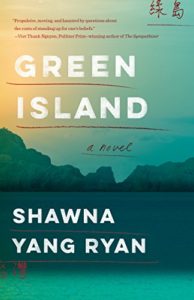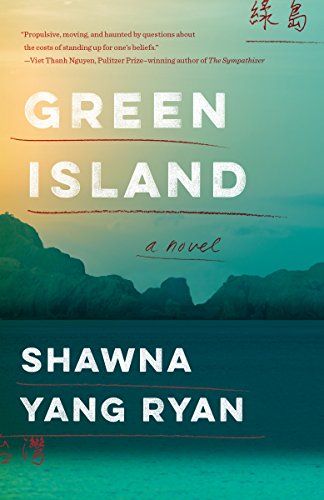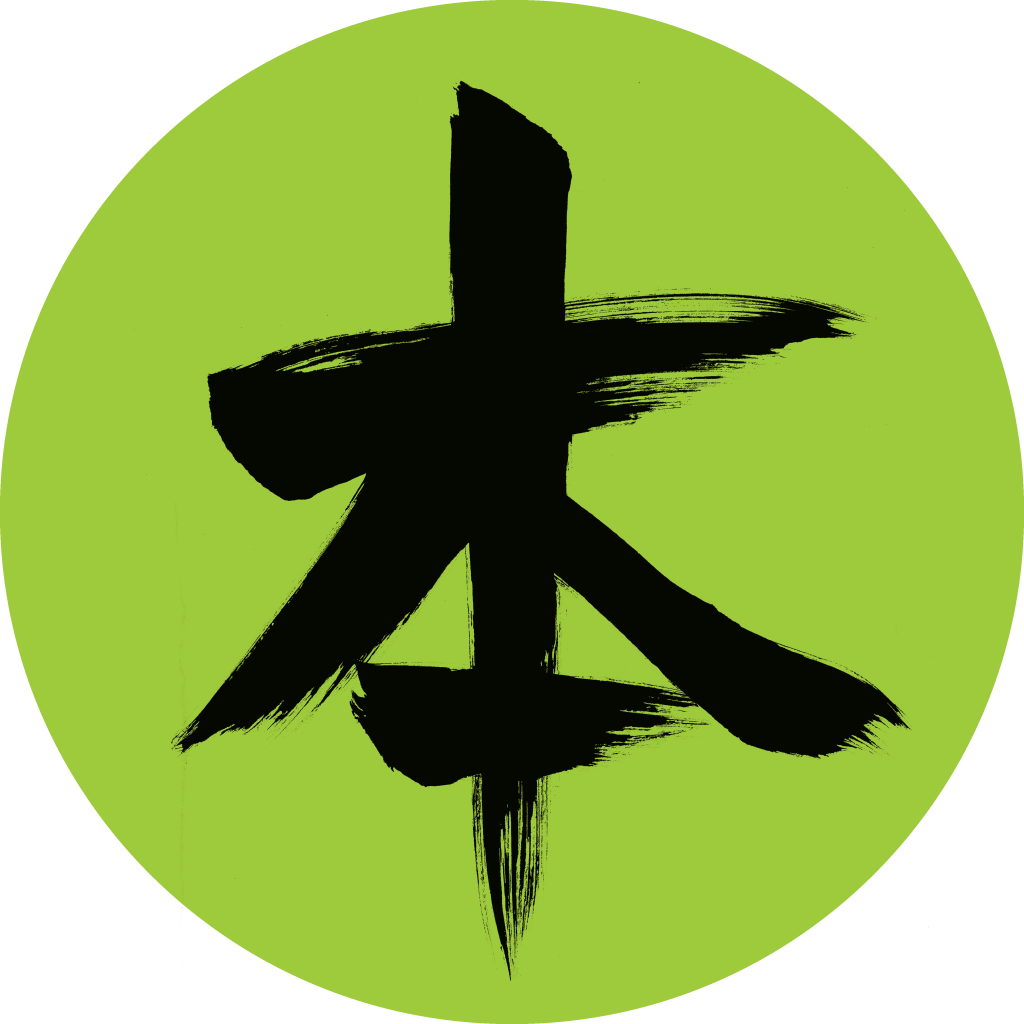

Mini Review
By Amy Chavez
I was prompted to read Green Island after learning about it in John Grant Ross’s Taiwan in 100 Books. I’d been fascinated with this former Japanese colony (ceded to Japan from China in the Treaty of Shimonoseki in 1895 at the end of the first Sino-Japanese War), since I first visited Taiwan and spent a month sailing around its waters. Green Island is a novel about a family caught up in the White Terror (the Feb. 28 Incident) in which the country was plunged into Martial Law on that date in 1947 and after which the KMT imprisoned thousands of people they deemed dissidents. It is on the eve of Feb. 28, 1947 that this novel begins, when the narrator was born.
I have to admit that, as much as I enjoyed this book, and Ryan’s beautiful prose, I had problems from the very beginning with an infant narrator. It’s not that it wasn’t an intriguing idea, or that it couldn’t have been pulled off, I just didn’t feel it was executed as smoothly as it could have been. Many sentences made me pause, like this one:
“I, lying swaddled on the bed, began to cry….My mother lifted me up and hushed me. She agreed with my complaints in a low voice, repetitive and soothing, like a groove revolving and rasping beneath a stylus.”
How can an infant describe the voice of her mother, especially when it is doubtful that, at a few months old, she would have even known what a stylus was? As authors, we must make a conscious choice as to whether we want to be omniscient narrators or not, and it’s difficult to pull off both points of view. There seemed to be such an insistence on this know-all infant in the first quarter of the story, (after which as the author became older, it seemed more reasonable that she could have developed such sophisticated thoughts) that I thought that for sure something, somewhere in the book, perhaps at the end even, there would be some explanation for such a precocious infant. I expected the narrator to find her mother’s diary, for example, that described such events in detail. But nothing appeared, and I slowly began to mistrust the narrator and doubt her reliability.
A good portion of the book takes place in the U.S., reflecting the family’s immigration there. This is the point in which the “novel” starts to sound more like a memoir. Well-written, vivid scenes of childbirth, for example, didn’t seem to have much to do with the story and I began to get a bit confused as to whether this was actually a memoir disguised as fiction, or fiction disguised as memoir. I think it’s always a risk to give a book a new theater when the audience has already invested themselves so heavily in the previous, and the writers who do this best are the ones who base as little time as possible in the last theater.
I especially liked Ryan’s treatment of the main character’s arranged marriage. It was sensitive, realistic and countered the American-centric stereotype of Asian women being forced to marry against their will. In Ryan’s novel the couple was merely introduced to each other, after which they could make their own decisions whether to continue the relationship toward matrimony. I enjoyed the dynamic between them as they grew together and struggled with decisions. And, the relationship did work, as many such marriages did at the time, and still do.
Despite the problems I had with the narrator and POV, and a few frustrations here and there with sudden tense shifts within the same paragraph, it was an excellent read on a subject most non-Asians, including myself, know nothing about. Since Ryan is, apparently, Asian American, it’s encouraging to see such rising literary stars penning novels about historical events with knowledge and proficiency. I’d recommend this book to anyone who has an interest in China, Taiwan and the struggle for Taiwan’s independence, a struggle which continues today.
Shawna Yang Ryan has authored another book called Water Ghosts, which I hope to read some day.
